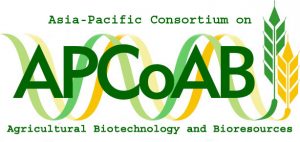[et_pb_section bb_built=”1″ _builder_version=”3.0.105″ custom_margin=”||10px|” custom_padding=”15px|0px||0px” custom_css_main_element=”z-index:11 !important;” next_background_color=”#000000″][et_pb_row custom_padding=”6px|0px|5px|0px” background_color=”#e09900″ _builder_version=”3.0.105″ use_background_color_gradient=”on” background_color_gradient_start=”#005109″ background_color_gradient_end=”#0c8914″ background_color_gradient_start_position=”50%” background_size=”initial” background_position=”top_left” background_repeat=”repeat” box_shadow_style=”preset1″ box_shadow_spread=”-3px” box_shadow_color=”rgba(2,119,35,0.3)” custom_css_main_element=”z-index: 10″][et_pb_column type=”4_4″][et_pb_text _builder_version=”3.0.105″ text_font=”Archivo|700||on|||||” text_font_size=”17px” text_text_shadow_style=”preset1″ text_text_shadow_horizontal_length=”0.13em” text_text_shadow_vertical_length=”0.01em” text_text_shadow_blur_strength=”0em” custom_margin=”|||20px” background_layout=”light” custom_margin_tablet=”||-20px|20px” custom_margin_last_edited=”on|tablet”]
Asia-Pacific Consortium on Agricultural Biotechnology and Bioresources
[/et_pb_text][/et_pb_column][/et_pb_row][et_pb_row custom_padding=”21px||0px||false|false” _builder_version=”3.0.105″ box_shadow_style=”preset1″ box_shadow_spread=”-2px” box_shadow_color=”rgba(2,119,35,0.3)”][et_pb_column type=”1_4″][et_pb_text admin_label=”APCoAB logo” _builder_version=”3.0.105″ custom_margin=”-20px|||10px” custom_margin_tablet=”-20px|||0px” custom_margin_last_edited=”on|tablet” mix_blend_mode=”overlay”]
[/et_pb_text][/et_pb_column][et_pb_column type=”3_4″][et_pb_code admin_label=”Menu APCoAB” _builder_version=”3.19.5″ custom_margin=”-13px|||-15px” custom_margin_tablet=”-13px|||20px” custom_margin_phone=”-13px|||35px” custom_margin_last_edited=”on|tablet” custom_padding=”|||”]
[/et_pb_code][et_pb_code admin_label=”Breadcrumb” _builder_version=”3.19.5″ custom_margin=”20px|||-10px” custom_margin_tablet=”|||20px” custom_margin_phone=”||15px|35px” custom_margin_last_edited=”on|phone”]
[/et_pb_code][/et_pb_column][/et_pb_row][/et_pb_section][et_pb_section bb_built=”1″ prev_background_color=”#000000″ next_background_color=”#000000″][et_pb_row][et_pb_column type=”4_4″][et_pb_text _builder_version=”3.0.105″ background_layout=”light”]
NGOs
NFU Online (to be updated)
The National Farmers’ Union (NFU) representing the farmers and growers of England and Wales, promotes successful and socially responsible agriculture and horticulture, while ensuring the long term viability of rural communities.
The Asia Rice Foundation
The Asia Rice Foundation a regional nonprofit organization works for an Asia that can feed itself by mobilizing and providing support for research, educational, cultural, and advocacy movements that promote public appreciation of the role of rice in the diverse culture of Asia, and ensure that farmers can produce enough rice to feed Asia’s growing population while preserving the environment.
AgBioWorld
The AgBioWorld Foundation on genetically improved plants is run by Professor C S Prakash University, is an independent 501(c)(3) non-profit organization principally a volunteer-driven organization that receives the vast majority of operating budget from individual contributions.
AgBioForum
AgBioForum is committed to providing a space where academics, private and public sector analysts, and decision makers can present timely scientific evidence to enrich the ongoing public debate regarding the economic and social impacts of agricultural biotechnology. Therefore, it is involved in publishing short, non-technical articles reporting on current research.
Agbios (under construction)
AGBIOS is a Canadian consultancy company dedicated to providing public policy, regulatory, and risk assessment expertise for products of biotechnology. It has conducted training programs for the environmental and food safety risk assessment of genetically modified crops. The Company also provides experience and expertise to commercial enterprises seeking regulatory approval of biotechnology products, and to other public and private sector groups seeking clarification of issues associated with the development and utilization of biotechnology processes and products.
BBSRC
BBSRC, Britain’s lead funding agency for academic research and training in the non-medical life sciences.
Biotechnology Innovation Organization (BIO)
BIO is the world’s largest trade association representing biotechnology companies, academic institutions, state biotechnology centers and related organizations across the United States and in more than 30 other nations.
[/et_pb_text][/et_pb_column][/et_pb_row][/et_pb_section][et_pb_section bb_built=”1″ _builder_version=”3.0.47″ prev_background_color=”#000000″][et_pb_row _builder_version=”3.0.47″ background_size=”initial” background_position=”top_left” background_repeat=”repeat”][et_pb_column type=”4_4″][et_pb_divider color=”#000000″ show_divider=”on” _builder_version=”3.0.105″ custom_padding=”|||” custom_margin=”||-5px|” /][et_pb_text _builder_version=”3.0.105″ background_layout=”light”]
Last updated in April 2018.
[/et_pb_text][/et_pb_column][/et_pb_row][/et_pb_section]
